— Research Overview
Pioneering biomimetic
solutions
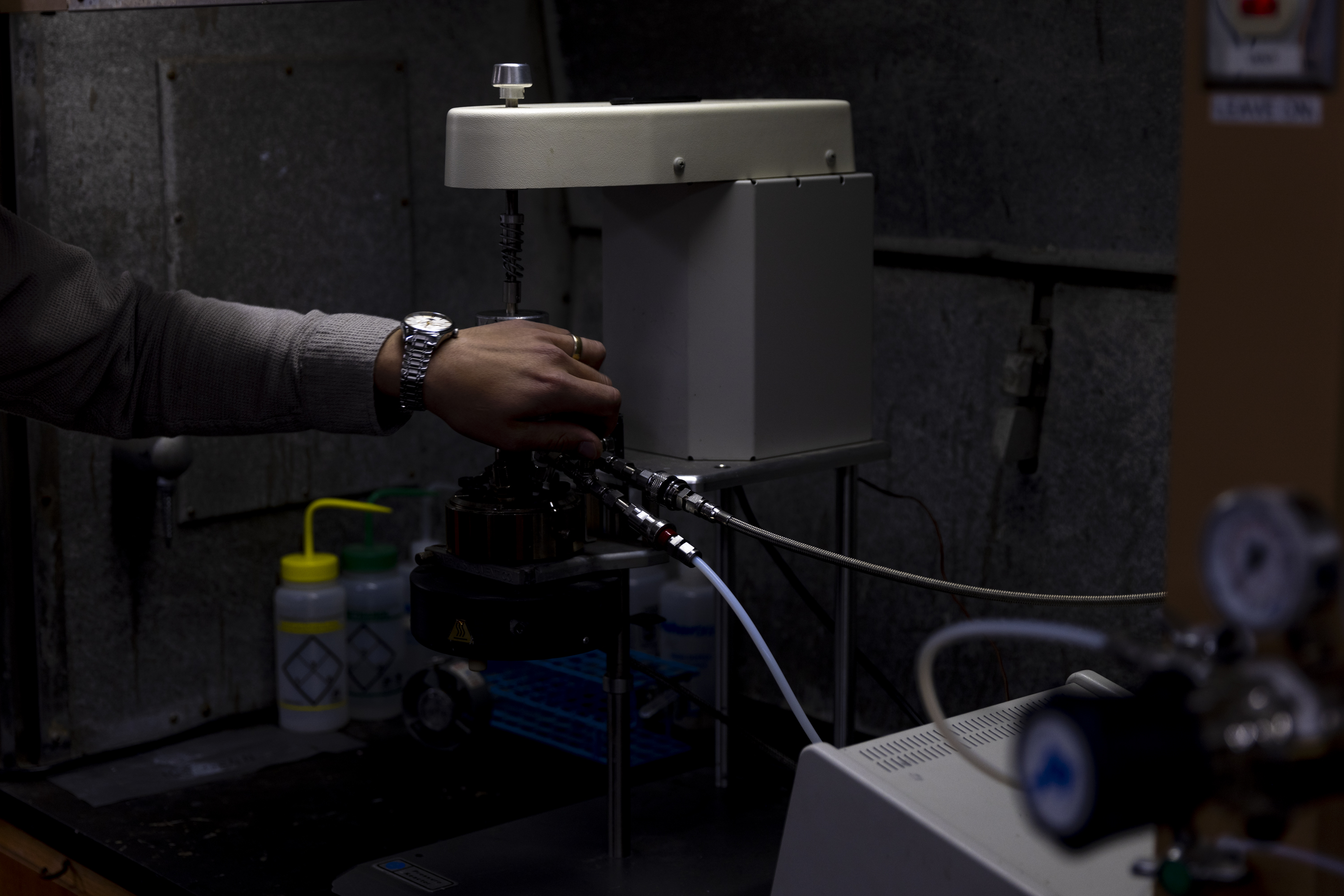
We adhere to nature’s blueprint with biomimetic heterogeneous catalysts
The efficiency of a chemical process often relies on a catalyst. Edisonian catalyst design is slow and costly, while computational approaches are limited by the vastness and complexity of the design space. We hypothesize that nature holds the key to rational catalyst design.
Inspiration
Seek catalytic solutions in nature
We are working to compile a database of metalloenzymes with chemical functionality that is relevant to commodity chemical production. Simultaneously, we are automating our ability to compare heterogeneous catalysts and enzymes.
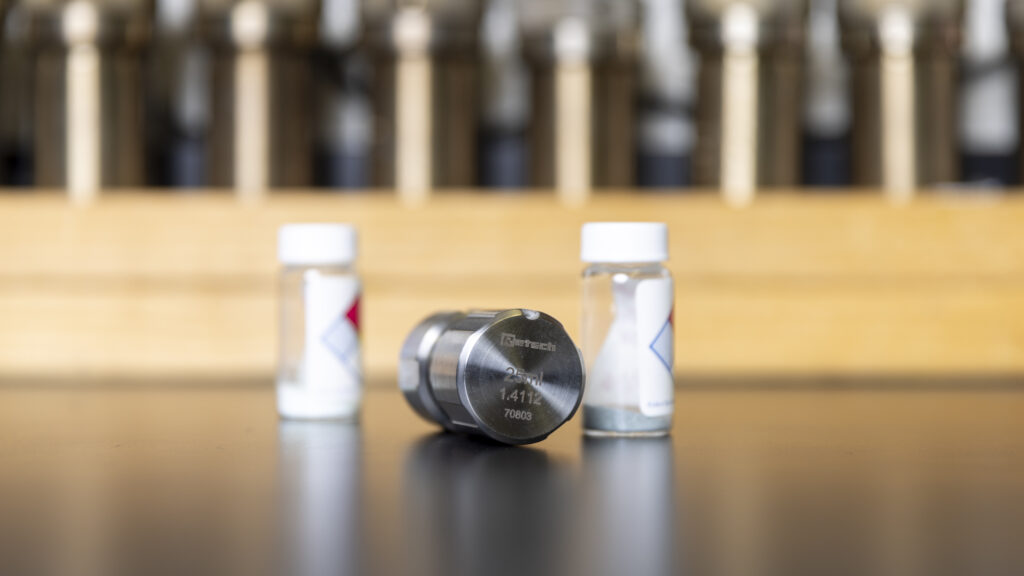
Synthesis
Engineer advanced, functional catalysts
Novel synthetic approaches generate single-site zeolite and metal-organic framework catalysts with highly tunable properties depending on the metal and topology. We are equipped with hydrothermal synthesis reactors and high temperature furnaces to synthesize high surface area heterogeneous catalysts.
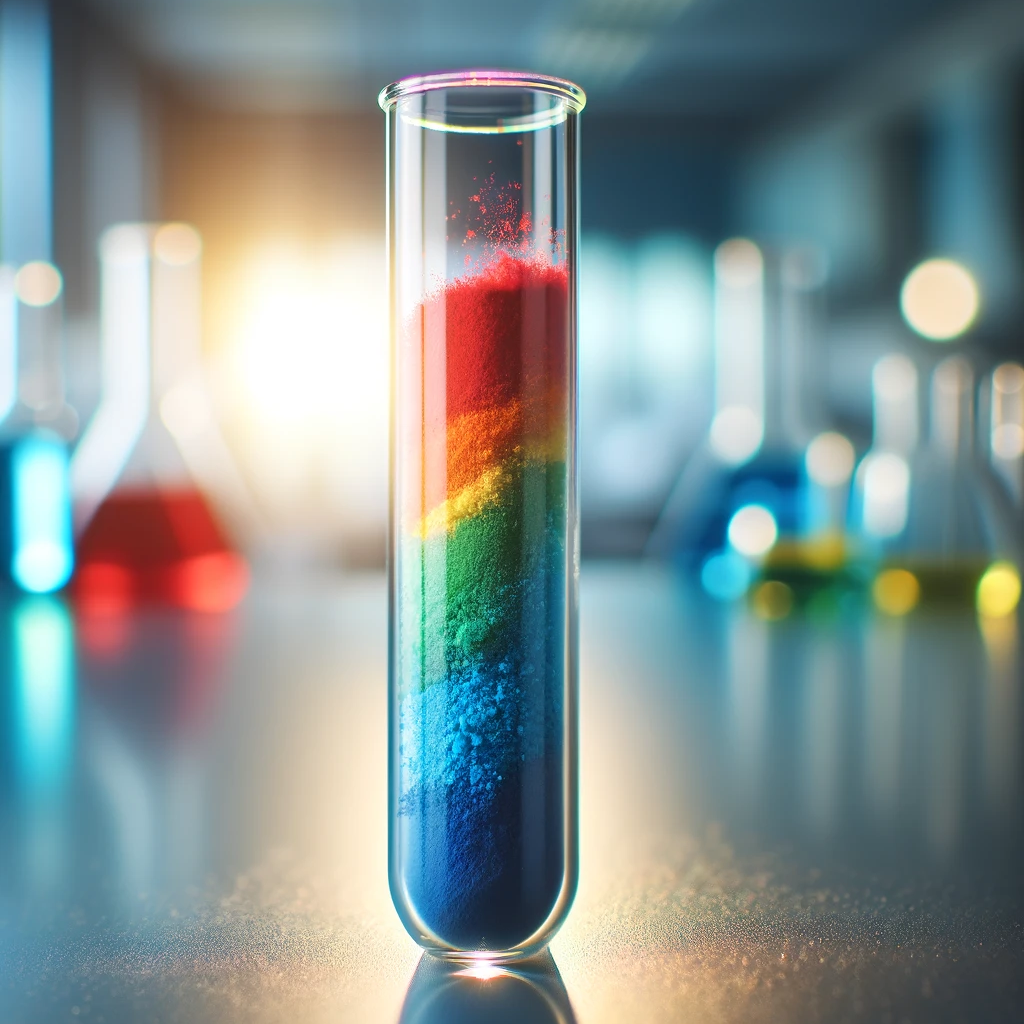
Characterization
Understand the catalyst properties
We are equipped with operando capabilities to characterize the catalytic active sites. We use a specialized reaction cell to interrogate our catalysts with diffuse reflectance UV-VIS, IR, and Raman spectroscopies coupled with mass spectrometers.
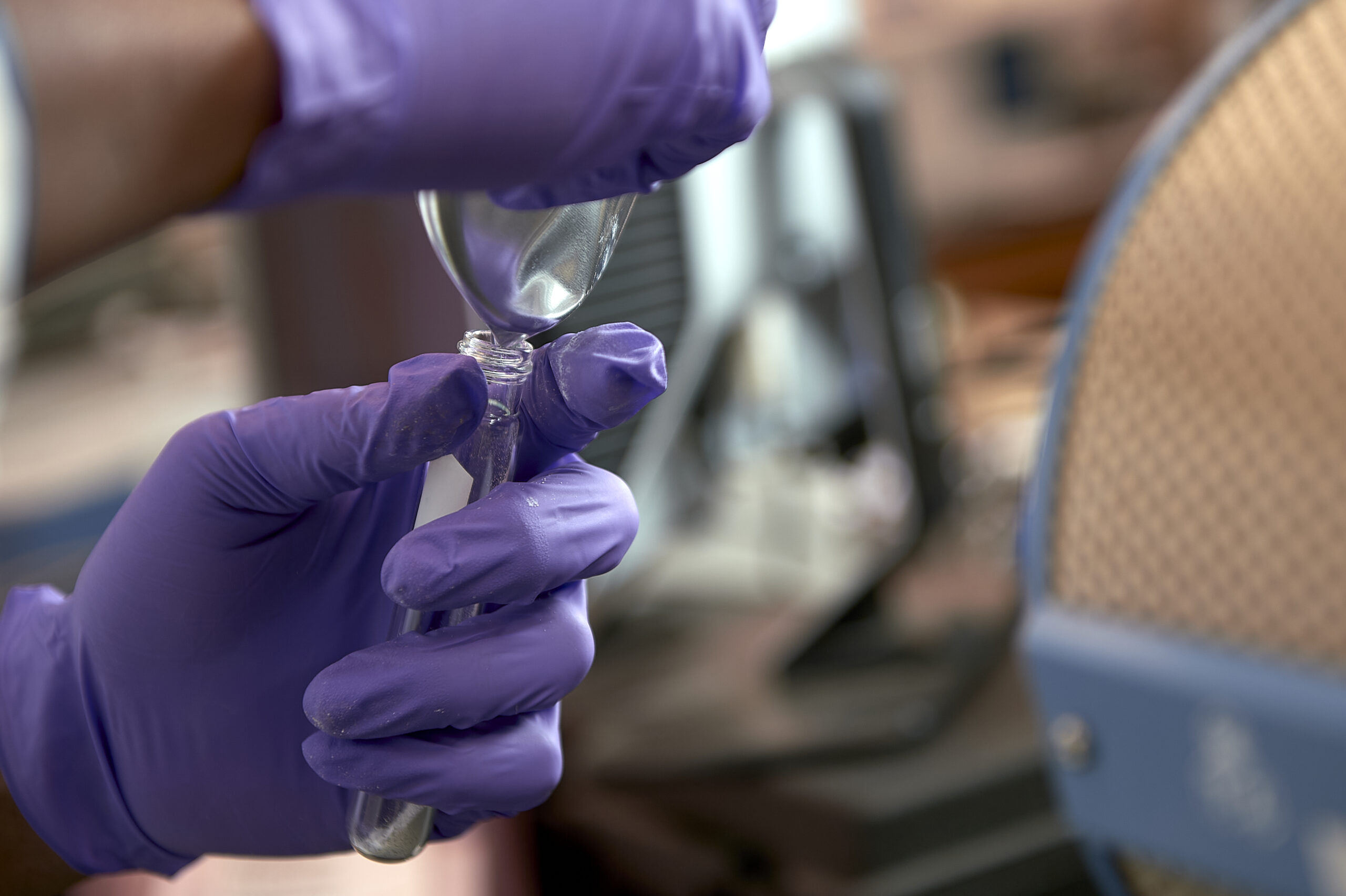
Testing
Applying the catalyst to a reaction
Our group focuses on small molecule chemistry. By tailoring the catalyst surface, activation energy barriers for challenging reactions are made possible. One central focus is the utilization of methane and carbon dioxide
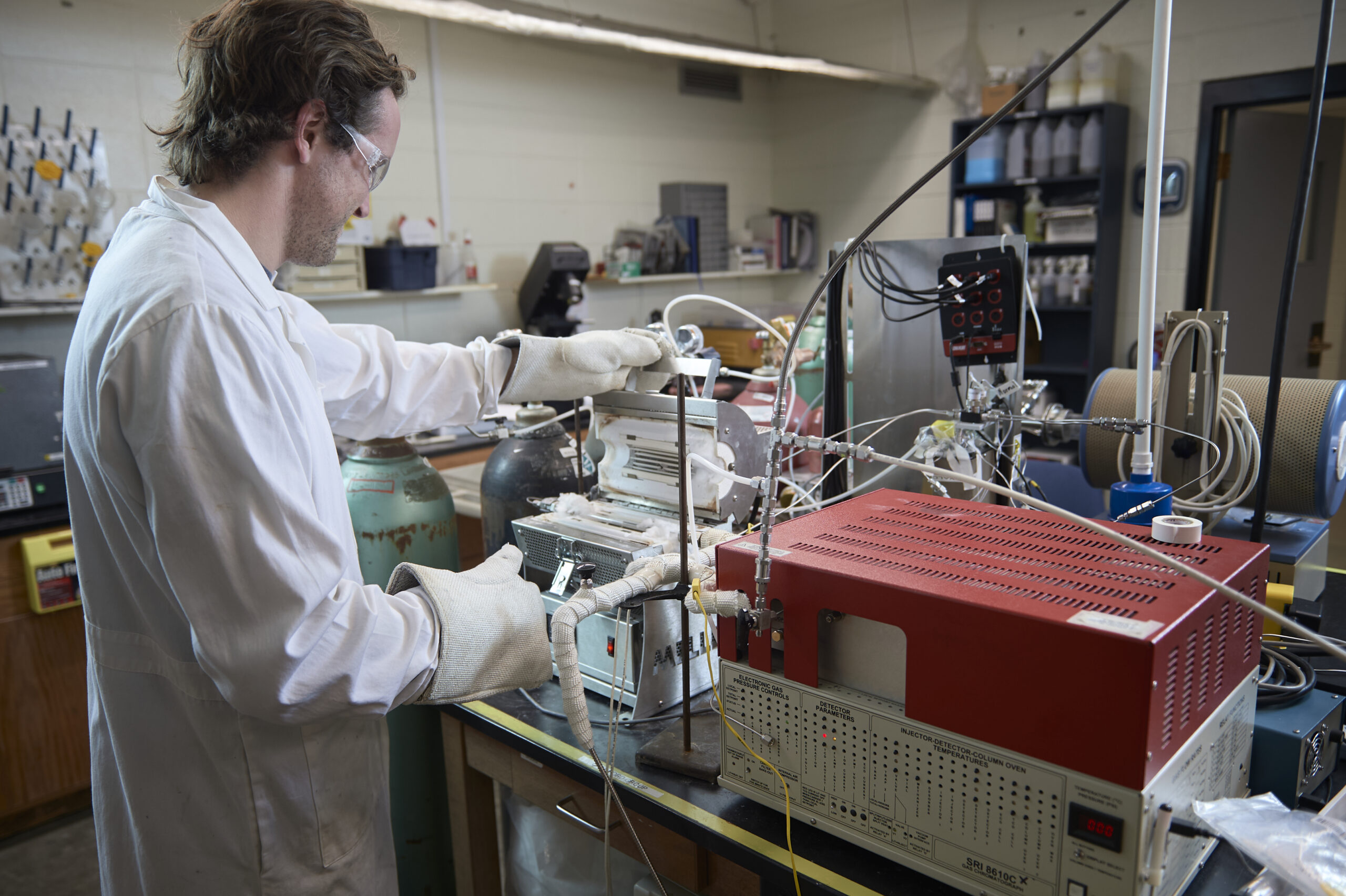
Crawford Group Opportunities
Our team is built of motivated PhD students interested in working at the interface of heterogeneous and enzyme catalysis. Learn More on our Opportunities page.

